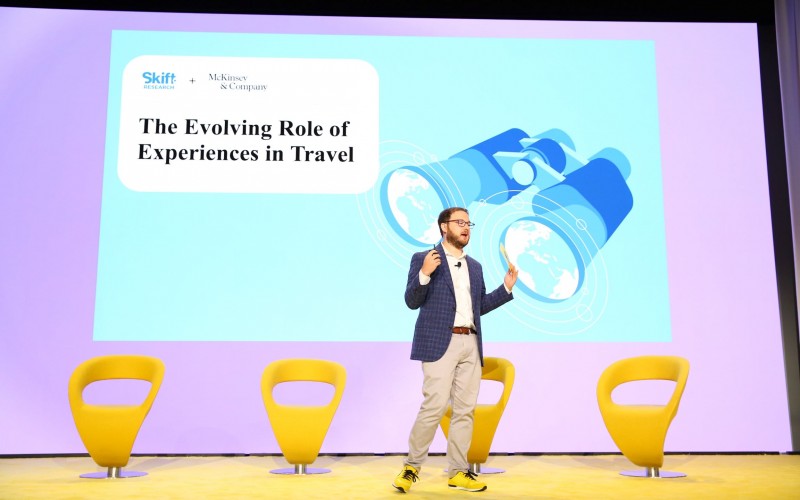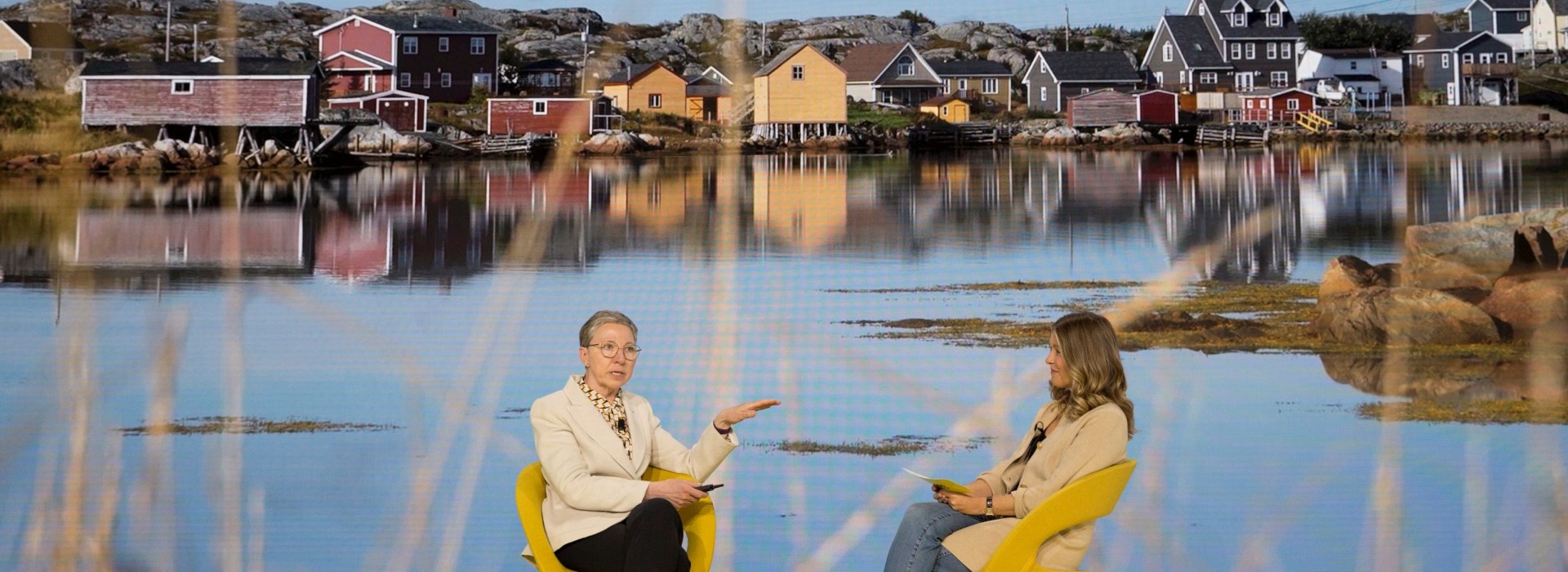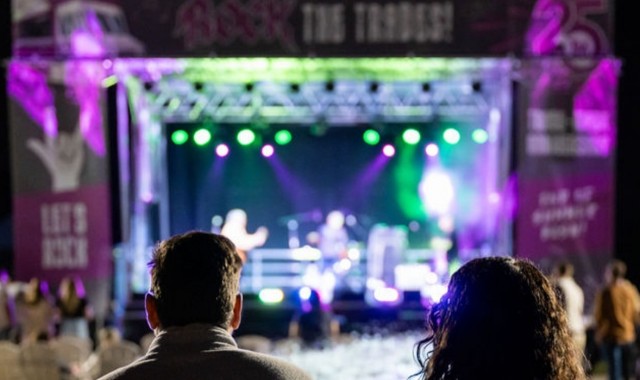At a recent gathering of event leaders at the SKIFT Global Forum, the discussion around event and travel industry trends centered on building experiences as the key to connecting with visitors and event audiences.
Insights and event research was shared by leading event and travel companies.
Top Travel Trends & Business Events
We took the top travel trends and related them to business events:
-
Business travel is re-bounding. This is encouraging to all of us in the corporate event space.
-
Bleisure (a combo of personal and business trip travel) will continue to be a thing. For event planners this means choosing your destinations with that trend in mind. Repeatedly, we heard from leaders at American Express Travel, MGM, Marriott, Freeman, United Airlines, McKinsey, and so many more, that travelers are seeking experiences, and with GenZ, or younger travelers -- placing it as a priority over products.
-
The impact of events is significant on people and places. The fact we bring people together and make real human connections helps combat loneliness that is so prevalent today. An increasing number of travelers are looking for an emotional experience and this merging of personal and business travel means the same is true for business events. In fact, when Sheraton Hotels did their transformation, they designed with the concept of a town square in mind.
-
Every leader spoke about how they are updating their technology and the role tech plays in events and travel to create a seamless experience. "Easy Tech makes doing business with you easy for your customers." Audrey Hensley, from American Express pointed out. "Customers expect a globally connected world."
-
Let's take a moment for food. The primary driver for international travel as Stephen Satterfield, Founder Whetstone Media pointed out - is the experience around food. In fact, the only shared cultural activity we have as human beings - is food. I'll do a whole separate post on event food and beverage soon, but when travelers are looking for experiences related to food, shouldn't our events reflect that?
-
Data shows that 80% of consumers look at social media before making decisions
-
The Taylor Swift effect. Many leaders spoke about the undeniable effect of TSwift and The Eras Tour on economies and the boost to local business. In fact, United Airlines began tracking her schedule so they could be ready for the influx of flights - it translated to 25% increase in flight bookings to different destinations.
The Importance of Incentive Travel in Business Events
The closing session with Zita Cobb, Founder and CEO of Shorefast and Fogo Island Inn was a highlight. It brought home to me why incentive travel trips are so critical for an organization's culture.
"Luxury is about connection." Luxury experiences bring people together in profound ways.
In building Fogo Island Inn, to become one of the top ranked luxury resorts in the world, Cobb felt her challenge was not only how to put another leg on the economy in the tiny island off the shores of Newfoundland, but how to do it in a way that strengthens culture which is what travel and hospitality can do. She founded Shorefast, a not-for-profit and embraced the community as a key stakeholder for the inn. Their mandate is the well-being of the community. There's much more to the story - you can read about her early life in the fishing village, to coming back after a high profile business career to invest in and provide employment for locals.
There was a lot of talk at the conference around the backlash in many countries against the crowds brought on by heavy tourism. We've all seen articles of how summer holidays in popular destinations are turning into a nightmare for locals. It reminded me of an article I read when visiting Turks and Caicos Islands about the six phases of a tourism destination's lifecycle. It was based on a 1980 study by a geography professor at the University of Western Ontario, Richard Butler. Referred to as the Tourism Area Life Cycle (TALC), the model has become a 'go to' resource in tourism research.
The BIG takeaway that seems to be missed today: If destinations aren't careful, they will move from the first stage of “Exploration to Involvement, to Development and Consolidation and then eventually to Stagnation and Decline." Sadly, the backlash we are seeing is actually a common stage in tourism.
You can Read the article here.
What Zita Cobb has set out to do calls upon all sectors of a community to avoid the Stagnation and Decline stages. More travelers do not necessarily equal success for a place.
Every element of Fogo Island Inn is designed to benefit community and local culture. Right down to the size of the inn so that it wouldn't overwhelm the coastal town. They invite everyone from the island to stay at the Inn. Granted the entire population is 2500 but how cool is that?
Leadership From The Hospitality and Tourism Industry
To say I was inspired is an understatement. Cobb talked about how we have incredible impact in the hospitality and tourism industry. We're everywhere across the world when you think about it - so we need to lead with vision and remember how very closely our business is tied to culture.
How do we build economies to support nature and culture? The Shorefast model makes each of the pillars of human society - Business, Governments and Communities - reliant on one another. "What is development if it's not developing the potential of the people in the places they live and its assets?"
Cobb even went as far as saying the hospitality industry needs economic nutrition - the equivalent of nutrition label on venues so travelers know where their money is going.
She closed with: "Travel is a privilege - when we go to a new place, when we share local experiences- arrive with tenderness in your heart for that place."
The desire for experiences and the spoil me of luxury destinations is what we should be striving to bring to all our events.
How incredible is it that we get to bring those experiences to life as event planners?
You can read more about the incentive travel industry here.
Read the state of tourism and hospitality in the McKinsey report here.
Photo credits Skift






